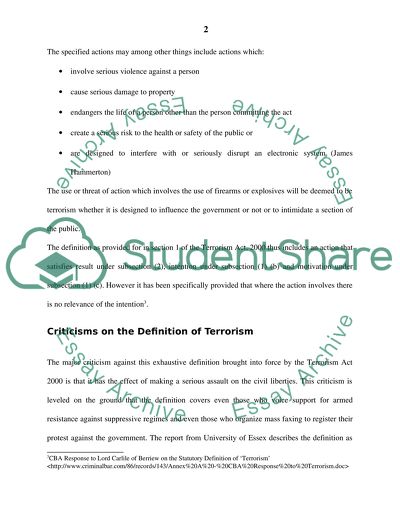Cite this document
(“Terrorism Act 2000 Essay Example | Topics and Well Written Essays - 2000 words”, n.d.)
Retrieved from https://studentshare.org/law/1514342-terrorism-act-2000
Retrieved from https://studentshare.org/law/1514342-terrorism-act-2000
(Terrorism Act 2000 Essay Example | Topics and Well Written Essays - 2000 Words)
https://studentshare.org/law/1514342-terrorism-act-2000.
https://studentshare.org/law/1514342-terrorism-act-2000.
“Terrorism Act 2000 Essay Example | Topics and Well Written Essays - 2000 Words”, n.d. https://studentshare.org/law/1514342-terrorism-act-2000.


